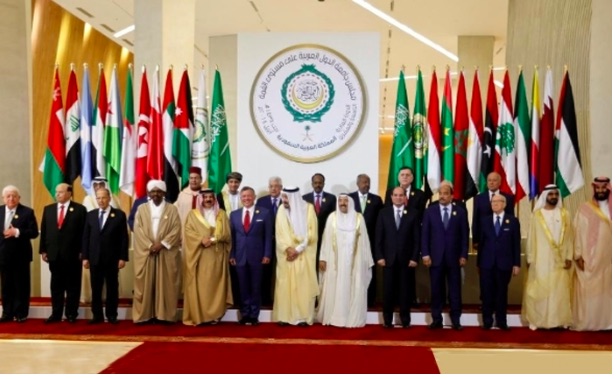.. DEMOCRATIC PARTICIPATION ..
An article by Mohamed Salah Kadri from Leaders (translated by CPNN and abbreviated)
The Cultural Capitals project originated in Europe in November 1983 . . . , when Melina Mercouri (1920-1994), then Greek Minister of Culture, invited her European peers to “rethink the role of culture in a European construction first based on the economic integration of its members”. The Council of European Ministers responsible for culture responded to this call and Athens (1985), Florence (1986), Amsterdam (1987) and West Berlin (1988) were respectively dedicated to “European cities of culture”

Also, at the end of the treaty of the Union of the Ibero-American Cultural Capitals (UCCI) signed on October 12th, 1982, Bogota was declared in 1991, Cultural Capital and La LaPaz, was benefited of this title in 1999 and now, after almost twenty years, the title is again awarded. . . The cities Montevideo (1996) and Havana (1997) were chosen as part of the UCCI. . . .
This recognition of belonging to a common cultural area is also at the heart of the “East Asia City of Culture” program, which seeks to foster mutual understanding between Japan, South Korea and China. . . .
Cultural capitals and cities in the Arab region
The objectives documented in the feasibility paper of the Arab Cultural Capitals Project prepared by ALECSO and endorsed by the 1998 Conference of Ministers of Culture in Arab Countries, were summarized as follows:
– to reaffirm the importance of Arab cultural unity and present a clear image of the Arab-Muslim civilization,
– to promote the participation of local populations in cultural life,
– to include culture as a vector of economic and social development,
– to encourage cultural and creative industries in Arab countries,
– to strengthen cultural cooperation between Arab countries and with the rest of the world.
(Continued in right column)
(Click here for the original in French.)
How can culture of peace be developed at the municipal level?
(Continued from left column)
The program of Arab capital cities and cultural cities continued on a regular basis from 1996, with one capital per year. From 1996 to 2018, a number of 21 Arab capitals enjoyed the title: Cairo (1996), Tunis (1997), Sharjah (1998), Beirut (1999), Riyadh (2000), Kuwait (2001) , Amman (2002), Rabat (2003), Sanaa (2004), Khartoum (2005), Muscat (2006), Damascus (2008), Jerusalem (2009), Doha (2010), Sirte (2011), Manama (2012), Baghdad (2013), Tripoli (2014) , Constantine (2015), Sfax (2016), Luxor (2017) and Oujda (2018). For the next five years, these will be: Port Sudan (2019), Bethlehem (2020), Irbid (2021), Kuwait (2022) and Tripoli (Lebanon 2023).
The merits and the limits of the project: some observations
The record of the Arab Cultural Capitals to date proves that they have the potential to act as a catalyst for local development and cultural tourism. The event was a good opportunity for new infrastructure to be built and others refurbished. Historical and archaeological sites are highlighted and artistic activities have multiplied. However, the lack of a cell or structure, even ad-hoc, at the level of the ALECSO responsible for monitoring this program makes it difficult, today to establish an exhaustive report of the actions carried out. . .
There is a tendency, more and more, to be limited to an opening ceremony and a closing ceremony. . . .
While the Arab Cultural Capitals project was a milestone on the agenda of the Arab Decade for Cultural Development (2005-2014), it is eminently recommended now with the launch from Tunis on 22 June 2018, by ALECSO, of an Arab Decade of Cultural Law for the period 2018-2027, to rehabilitate the project of the Capitals of Arab Culture in the light of the objectives of the said Decade. The Capitals of Culture chosen for the next few years should take into account in their programs new developments, namely to protect cultural rights as human rights and to promote the culture of peace, tolerance and the improvement of culture. mutual understanding between Arab countries and the rest of the world. In addition, it also seems advisable to work towards mutual alliances, to form partnerships and to make twinnings between the Arab Cultural Capitals and their African, Islamic, European, Asian and Ibero-American counterparts. De facto, a work on the image of the winning city requires borrowing cultural policies likely to enroll the younger generations in the era of time and prepare them to live in a plural world. On the other hand, did the 29th Arab Summit held in Dhahran (Kingdom of Saudi Arabia) on April 15, 2018, present an opportunity to rethink the status of culture in Arab countries, calling for the organization of an Arab summit exclusively dedicated to the cultural question “Better to keep one promise than to renew one hundred”.